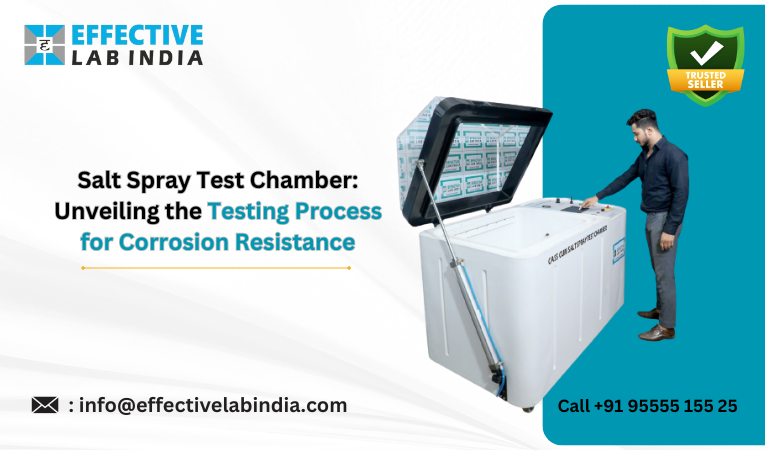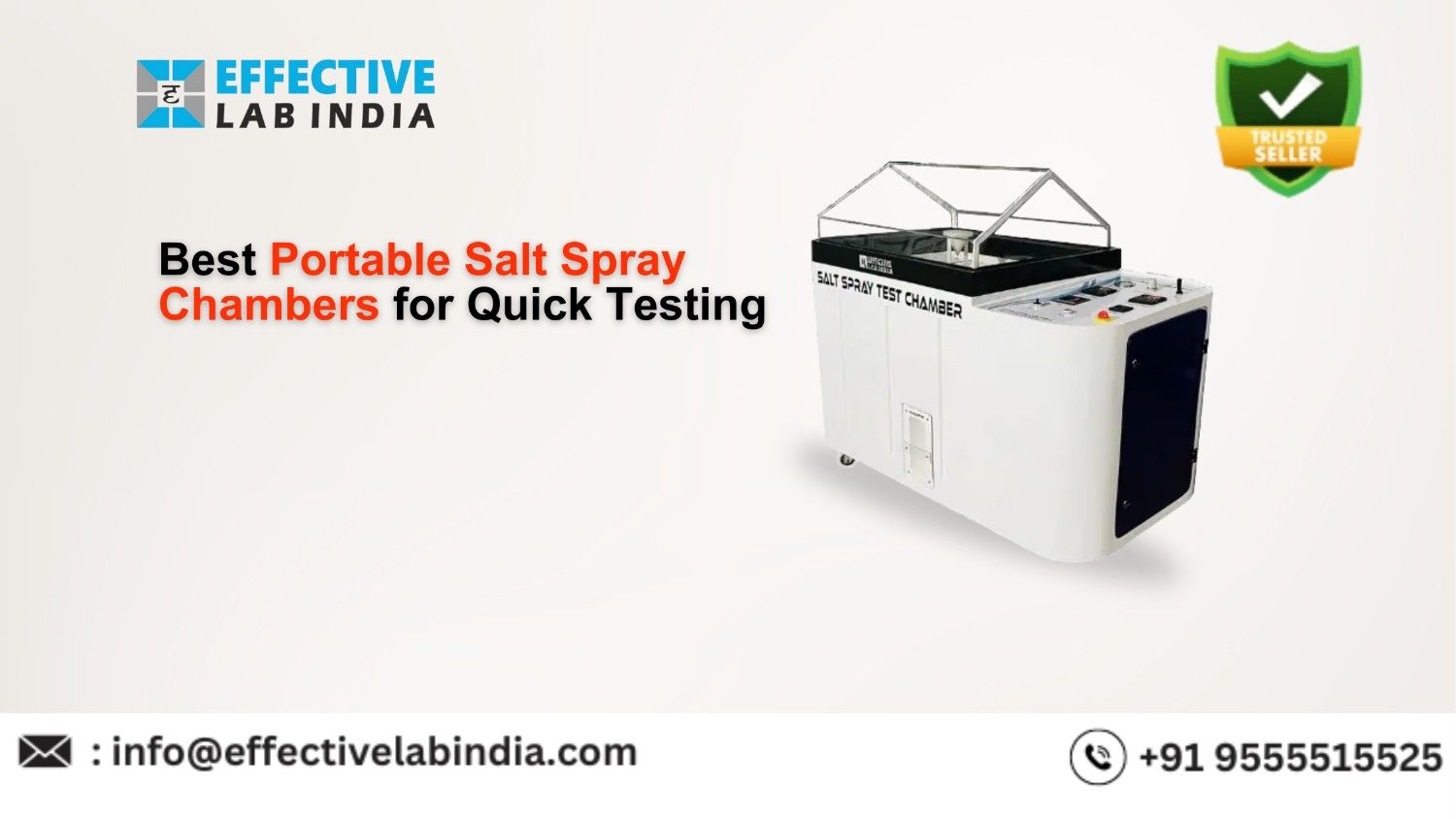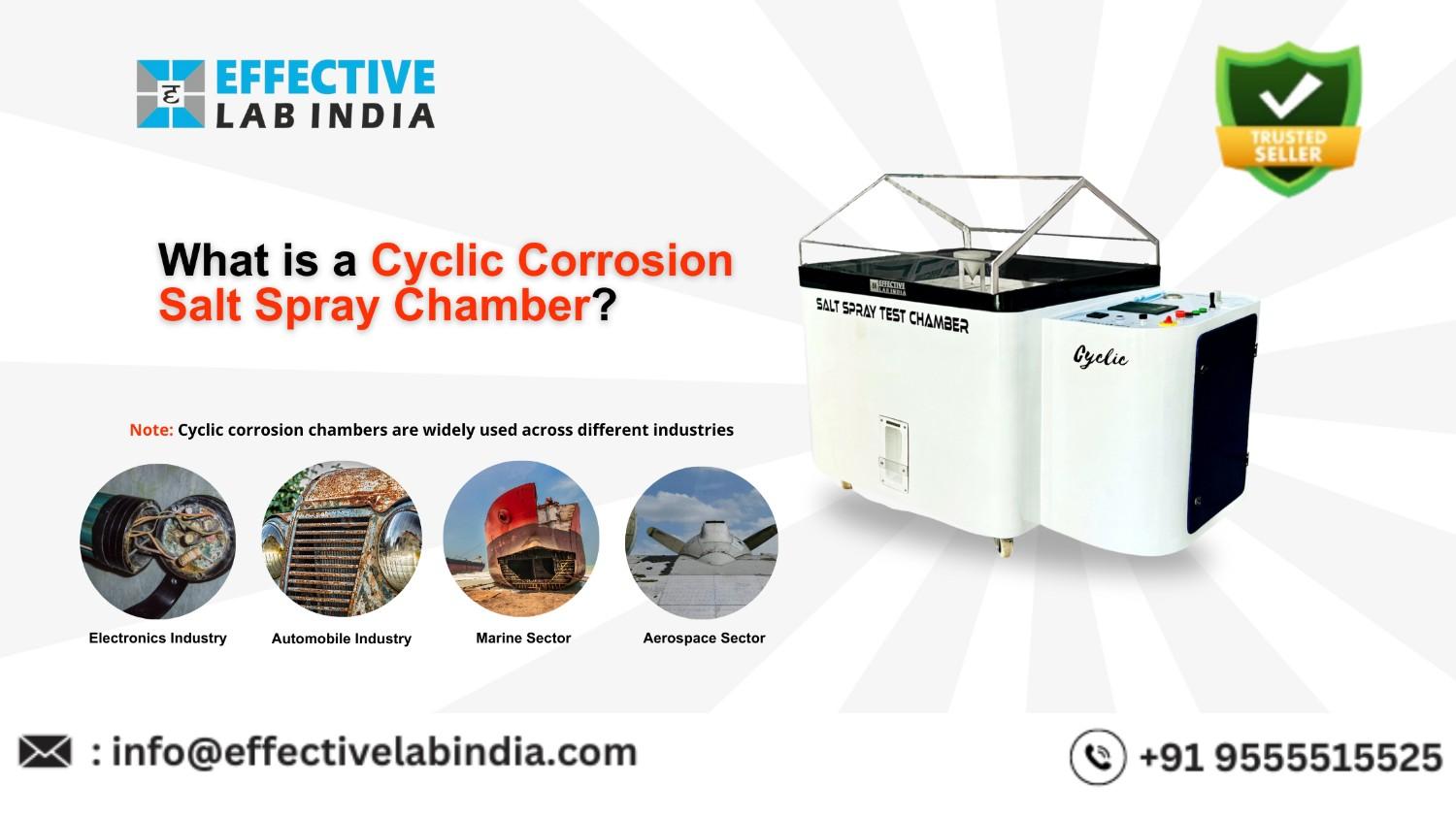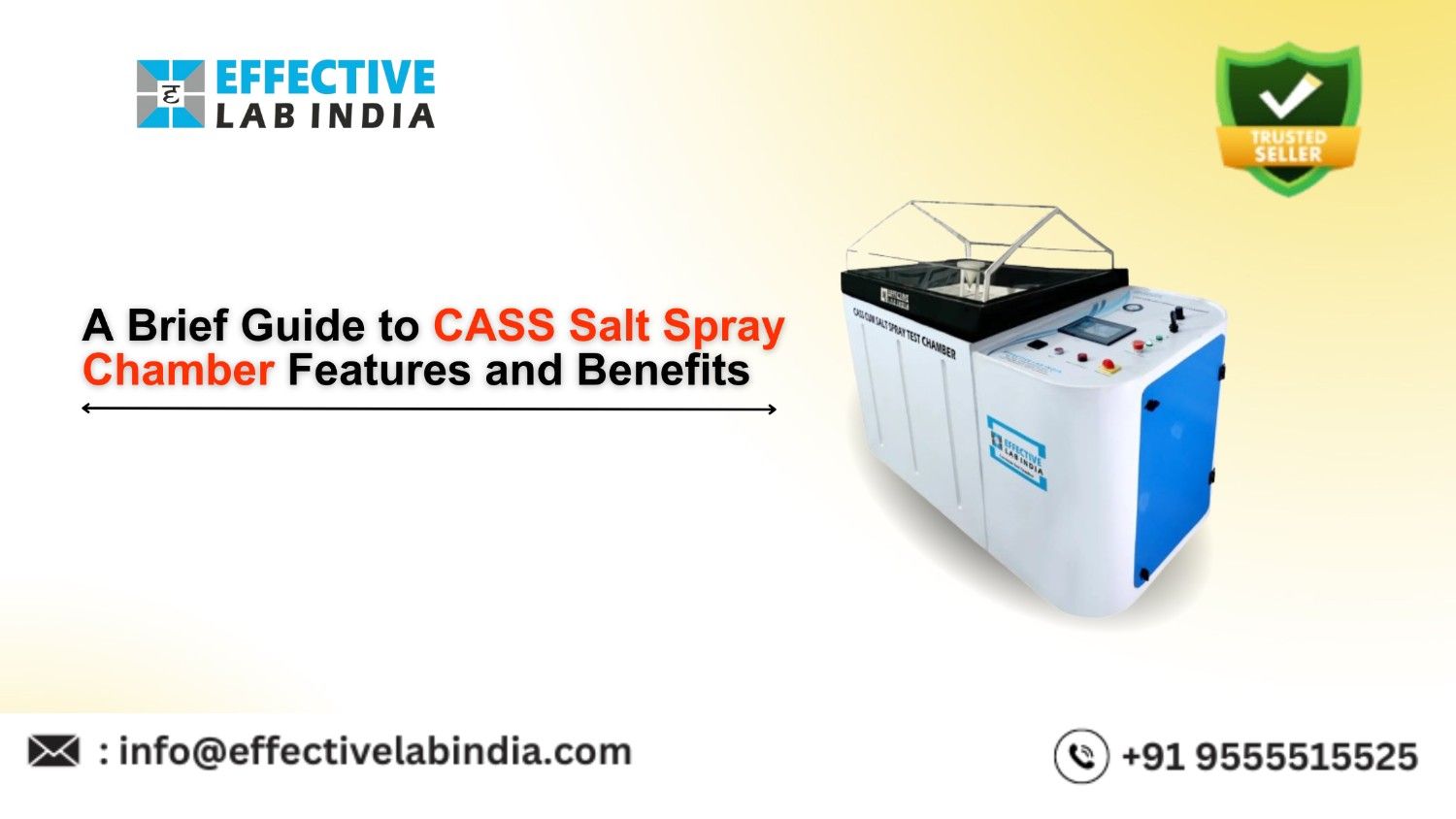Salt Spray Test Chamber: Unveiling the Testing Process for Corrosion Resistance

A salt spray test chamber is used for conducting corrosion resistance tests of different products across various industries. Our salt spray chamber could be quick, repeatable and carefully controlled. With the help of a our salt spray test chamber, manufacturers can determine the resistance of their products in corrosive environments. An essential machine for evaluating the corrosion resistance of materials and coatings is the salt spray chamber. This chamber, which is designed to recreate a salty environment, offers a regulated environment for subjecting its products to harsh conditions, allowing manufacturers to assess the durability and lifelong of their materials. It is frequently used in industries where corrosion resistance is essential to product quality and performance, such as automotive, aerospace, electronics, and coatings.
Inside the chamber, a saltwater solution is sprayed in a controlled atmosphere to keep the temperature and humidity stable. This instrument speeds up the corrosion process, allowing producers to quickly determine the resilience of their materials, which would ordinarily take months or years in everyday use. The salt spray test chamber is used in a variety of industries, particularly the automotive, aerospace, and marine sectors, to confirm that items such as automobile parts, ship components, and outdoor equipment can withstand salty, corrosive conditions without degrading prematurely.
It is structured as per relevant standards for assessing rust-proof components to withstand corrosion. The body is made up of fibre rainproof along with double walls. Moreover, this salt spray test machine is designed in terms of ASTM B117 standards.
Working Principle of Salt Spray Test Chamber
Corrosive environmental conditions are mimicked in the Salt Spray Mist Chamber to evaluate the longevity of materials and coatings. Test samples are set up and placed inside the chamber at the start of the procedure. There, samples are subjected to a fine mist of saline solution, usually a 5% sodium chloride (NaCl) combination. An atomising nozzle creates this mist, dispersing the saline fog evenly across the chamber. To ensure constant test conditions, the chamber’s environment which includes temperature and humidity is carefully regulated. A temperature of around 35°C is often maintained.
The specimens are continually exposed to the saline mist for a specified duration of time, which can vary from hours to weeks, to replicate the outcomes of extended exposure to a corrosive environment. The digital control system in the chamber monitors and records many parameters during the test, including temperature, humidity, and spray duration, to ensure precise and consistent outcomes. Following the test, the specimens are examined for corrosion indicators, including rust or coating decay, which offers important information about their corrosion resistance. High standards of quality and performance are ensured by the accurate procedure by which manufacturers assess the long-term durability of their materials in harsh environments.
Key Features
Our salt spray chamber have been equipped with advanced functions, such as digital controls that are easy to use and a microprocessor-based mechanism that ensures accurate functioning. It comes in three different capacities: 250L, 450L, and 1000L. Their tough Fibre Reinforced Plastic (FRP) structure ensures long-lasting performance even under the most demanding testing conditions.
1. Digital Control System: Precise control of temperature, humidity, and spray conditions.
2. Durable Construction: Corrosion-resistant stainless steel interior and reinforced exterior.
3. Uniform Spray: An effective atomising nozzle in the chamber creates a fine, consistent mist of a saltwater solution. That means the test specimens are consistently covered, producing precise and consistent outcomes.
4. Temperature & Humidity Control: Stable, adjustable testing environment.
5. Safety Mechanisms: Includes over-temperature protection and automatic shutdown.
6. Easy Maintenance: Parts that are easily removed for maintenance and cleaning.
Applications and Benefits
Automotive Industry: Evaluating automotive parts’ resistance to corrosion, including body panels, fasteners, and coatings.
Aerospace: Guaranteeing the longevity of aerospace parts subjected to maritime conditions.
Electronics: Evaluating electronic components’ and enclosures’ resistance to corrosion.
Coatings: Testing the protective coatings’ efficacy on metals and other materials.
Reliable Test Results: Manufacturers can make accurate choices regarding material selection and layout of products by using the Salt Spray Chamber reliable and consistent results.
Enhanced Product Quality: Manufacturers can ensure their items meet high durability and quality standards by testing them under serious, simulated environments.
Technical SpecificationsChamber Capacity: Available in various sizes, typically 250 to 1000 litres, to accommodate different testing needs.
Temperature Range: Ambient to 40°C (adjustable).
Humidity Control: Adjustable humidity levels, typically up to 98% RH.
Salt Solution Concentration: Adjustable between 5% and 20% NaCl solution.
Spray Nozzle: Fine atomizing nozzle with adjustable spray rate.
Material: The inner & outer chamber is made of a Fibre Reinforced Plastic (FRP) Body.
Power Supply: Available in voltage configurations, typically 220V, Single phase, 50Hz, 15 A.
Compliance: Conformity: Fulfils international standards for salt spray testing, including ASTM B117, ISO 9227, and JIS Z 2371.
Uses of Salt Spray Chamber
A salt spray test chamber is used widely in different industries for various purposes.
Here we listed some of its uses which are:
- The common use of a salt spray test is to assess the corrosion resistance properties of different materials. Manufacturers can evaluate the durability of their products in corrosive environments with the help of this testing machine.
- It also works as a quality control. It is used for testing whether the products meet the regulations and standards of industries or not. By testing the products in a salt spray test machine, manufacturers can identify potential weaknesses in their products.
- It can also be used for research and development. Scientists can determine the effects of corrosion on different samples with the help of this machine.
- It is also used for certification and compliance of different industrial products.
However, it is a beneficial tool for evaluating the corrosion resistance properties of different products.
Salt Spray Chamber Manufacturer and Price In India
Finding India’s best salt spray chamber manufacturer requires considering several important aspects, including dependability, customer service, industry expertise, and product quality. Effective Lab India stands out as one of the industry leaders among the leading manufacturers. Salt Spray Chambers available at competitive prices, starting from ₹1.78 Lakhs to ₹4.87 Lakhs INR, tailored to meet diverse testing needs and industry standards. Contact our sales staff to place an order for a Salt Spray Fog Chamber or to find out more about the salt spray chamber price & customisation options. To meet various testing needs, we have a variety of models, and we are pleased to respond to any questions that you may have. For more information or to request a quote, please get in touch with us at Email: info@effectivelabindia.com & Phone: +91-9555515525, 9355443334.




